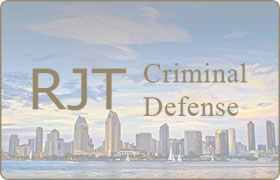Bonita Juvenile Law Lawyer, California, page 2
Sponsored Law Firm
-
 x
x

Click For More Info:
-
RJT Criminal Defense
2820 CAMINO DEL RIO SOUTH STE 110 SAN DIEGO,CA» view mapDUI Defense, Drug Crimes, Homicide San Diego Criminal Defense Lawyer
San Diego's Experienced,Aggressive Criminal Defense Team is Here. Don’t leave your case, or your future, to chance. Contact us, find out what we can do for you.
800-697-9361 -
- Contact
- Free Evaluation
- Visit:
- Website
- Profile

 Ryan James Tegnelia San Diego,CA
Ryan James Tegnelia San Diego,CA About UsRyan James Tegnelia
About UsRyan James Tegnelia Contact UsContact Us Today!!
Contact UsContact Us Today!!
